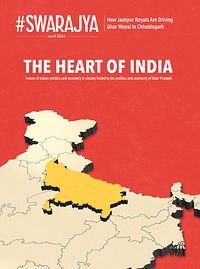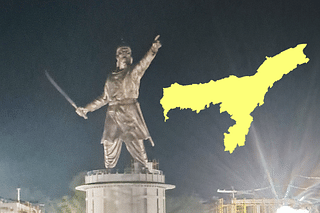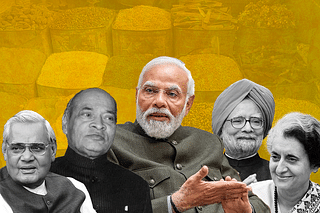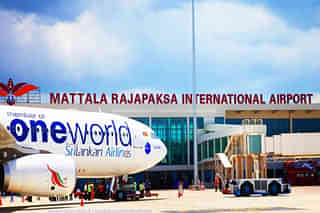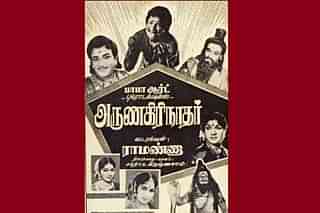Politics
If Centre Wants To Restore J&K’s Statehood And Hold Elections, This Is The Least It Should Do With Delimitation
Arihant Pawariya
Oct 23, 2020, 12:42 PM | Updated 12:40 PM IST
Save & read from anywhere!
Bookmark stories for easy access on any device or the Swarajya app.
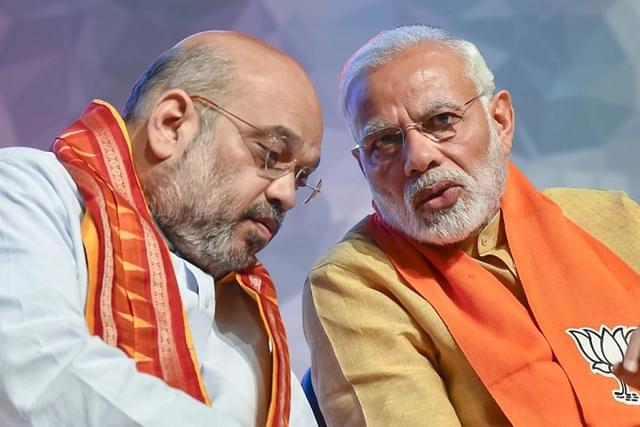
After the historic decision in August last year to abrogate Article 370, which also repealed Article 35A, New Delhi has not shown the will to take necessary follow-through actions. Despite winning the legislative battle (backed up by an extra tens of thousands of armed soldiers in the valley), the Centre seems to be preparing to give up the hard-earned gains slowly.
First, it prescribed an unusually long 15-year domicile period for non-Kashmiris (to be used as a prerequisite for applying for government jobs). This shows India’s weakness in not moving away from its bad habit of awarding “special status” to Kashmiris as appeasement, which is a hindrance in integration of the troubled region with the rest of India.
Second, the government has now released all important political leaders of Kashmir — Abdullahs and Mufti — who were being held in detention since August last year. One is not particularly opposed to the idea of freeing them. However, the worrying part is that their release could only be the first step by the government in resuming the political process in the valley and reinstating J&K’s statehood.
From Prithviraj Chauhan to Indira Gandhi, Indian leaders have a tendency to lose in statesmanship what they win in wars. The Bharatiya Janata Party (BJP) leaders, including Prime Minister Narendra Modi and Home Minister Amit Shah have assured that elections to assembly will happen once the ongoing delimitation process is completed apart from promising that the statehood will be restored. Undoubtedly, this will be a big blunder.
The fundamental problem in Kashmir is the imbalance of religious demography. Muslim separatism is direct result of Muslim majority in the border region. Everything else is a symptom. Unless the Indian government understands this and actively works to change the situation on the ground, Kashmir cannot be made an integral part of the country. The ideal solution is to keep J&K under Centre’s rule by keeping its status of Union Territory intact for the next two decades at least while trying to change the religious composition of the population.
J&K’s total population (according to 2011 Census) was 1.25 crore out of which 68 per cent were Muslims and the rest non-Muslims. This roughly translates to 85 lakh Muslims. Sustained immigration of 10 million migrants over the next 20 years followed by a decade of consolidation can rebalance the demography and integrate it more fully to India. In an earlier piece, I had written how the government can go about achieving this.
But all indications from the BJP leaders show that there is little appetite to continue with the hard stance and absolutely no will to attempt to alter the demographics in the erstwhile state. So, the best bet is to get the delimitation right.
As per the reports in the media, the number of assembly seats in Jammu and Kashmir region is going to increase from 83 to 90. Currently, out of 83 seats, 46 fall in Kashmir valley and 37 in Jammu. The best possible outcome post delimitation is 45-45 division between both the regions, though Kashmir is likely to have an edge given its higher population in the 2011 census which has been made the basis for carving out the assembly seats.
Given that all 10 districts in Kashmir and six out of 10 districts in Jammu are Muslim-majority, the fact that over 65 per cent population of J&K is Muslim and both Abdullahs and Muftis are joining hands along with the Congress, one can be certain that if polls are held, there will be a Muslim Chief Minister again, that too from Kashmir and things will go back exactly to the “normal” that prevailed before the revocation of Article 370.
So, we must introspect what the nation would really gain? The point isn’t just to tick a promise made by the BJP in its manifesto but to reclaim Kashmir once and for all for India.
But given that it’s only a matter of time before elections are conducted in J&K and its statehood is restored, here is the least that the Centre must do:
First, the government should not restore full statehood but rather come up with an arrangement along the lines of how the Delhi government is functioning, with an elected chief minister and assembly but there is a lieutenant governor (LG) appointed by the President who acts as a check on the executive whereas some important administrative functions in the capital are carried out by the Union government.
Of course, the powers of a LG in J&K would have to be much more than that of Delhi’s. Additionally, the government can put a condition that LG should be an army veteran no less than the rank of Lt General (or other high rank). The chief minister and his/her cabinet should be given charge of only development related portfolios. And LG should also have a veto to block any bills passed by the state assembly.
Second, all the soldiers posted in Jammu and Kashmir should be given right to vote in elections in J&K along with all the Kashmiri Pandits in the country or other Hindus who were once citizens of the state.
However, since they aren’t living in Kashmir and wouldn’t be electing their representatives there, they should be allowed to choose representatives for five-10 seats out of 24 seats demarcated for Pakistan-occupied Kashmir region which currently remain vacant in the house.
Third, the government should push for major development in Jammu region so that the tide of demographic invasion here can be reversed. Already, six out of 10 districts are Muslim majority and if there is no major population shift from rest of India to Jammu in next few years, this whole area will also be lost.
Unless the Modi government takes these bare minimum steps, its decision to abolish Article 370 would amount to an empty gesture, which only dented India’s image and achieved nothing of substance in return.
Save & read from anywhere!
Bookmark stories for easy access on any device or the Swarajya app.
Arihant Pawariya is Senior Editor, Swarajya.
Introducing ElectionsHQ + 50 Ground Reports Project
The 2024 elections might seem easy to guess, but there are some important questions that shouldn't be missed.
Do freebies still sway voters? Do people prioritise infrastructure when voting? How will Punjab vote?
The answers to these questions provide great insights into where we, as a country, are headed in the years to come.
Swarajya is starting a project with an aim to do 50 solid ground stories and a smart commentary service on WhatsApp, a one-of-a-kind. We'd love your support during this election season.
Click below to contribute.
